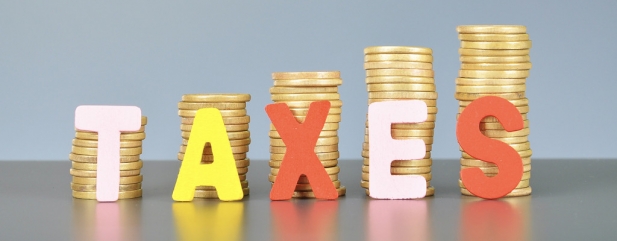Archived article
Please note that tax, investment, pension and ISA rules can change and the information and any views contained in this article may now be inaccurate.
When you pay tax in your ISA and SIPP

People putting their money away into an ISA or SIPP can shelter their savings from tax, but you’d be mistaken for thinking that all aspects of these accounts are entirely tax free.
Here we explain the situations where you would end up paying tax on this money – from inheritance tax to being penalised for saving too much.
WHEN THEY ARE TAX FREE
Money put into an Isa account can grow free of tax, meaning that you pay no income tax or capital gains tax on the returns. When you withdraw the money from the account there is also no tax due.
With a pension or SIPP you get Government tax relief on the money you put in, proportionate with your income tax level. This means that your contributions are tax free. Any gains within the pension are also tax free, and you then pay tax on the lump sum or income you draw from it, at your marginal rate.
WHEN DO YOU PAY TAX?
Despite the above, ISAs and pensions are not entirely tax free. There are certain situations where you will pay tax.
First, everyone pays stamp duty when they buy and sell investments. This is usually a tax of 0.5% of the value of the transaction when you buy shares. You pay this money automatically if you buy the shares electronically.
This doesn’t apply if you buy units of an open-ended investment company, also known as an OEIC, or buy units in a unit trust from a fund manager. However, the fund managers in the funds you buy will have to pay this tax, so you’ll pay for it indirectly.
Another area where you may pay tax within an ISA is on dividends paid out by any foreign companies that you own in your ISA or pension. This would only arise if you own shares in a company based overseas, and it doesn’t apply to all countries. This tax is known as a ‘withholding tax’ and the rate varies between 15% and 35%, depending on the country.
You can usually claim this money back, but it can involve a lot of paperwork and information being filed with foreign tax authorities. The UK has negotiated a double taxation agreement with some countries, meaning you are exempt from paying the additional tax in some places.
Inheritance tax poses the biggest threat to your ISA pot, as ISAs are considered part of your estate for inheritance tax purposes. Everyone can have £325,000 of assets before they have to pay inheritance tax, but anything above this amount will be taxed at 40%.

While this seems like a large limit, property is counted as part of your estate, so anyone with a higher-value home (particularly if they live in London and the south-east where property prices are higher) and a healthy investment pot may hit this limit.
The only exemption to this is if you invest in certain shares listed on the AIM stock market within your ISA. Some of these companies are eligible for something called Business Property Relief. This means that as long as you hold the shares directly and for at least two years, they will be exempt from inheritance tax.
However, these companies are smaller and so tend to be a riskier investment, meaning you may not want to put a large portion of your pension or long-term savings in these companies.
PENSIONS TAX CONSIDERATIONS
With pensions, you face specific taxes if you save too much in your pension, either each year or over your lifetime.
Pensions have an annual limit on contributions, which is £40,000 for the majority of people. It’s limited to £10,000 for some higher earners, in what is known as the ‘tapered annual allowance’. Anything you save over your limit each year is not eligible for tax relief, in the same way as the rest of your contributions are.

Pensions also have a lifetime allowance, placing a cap on how much you can save up into your total pension pot. The limit for the current tax year is £1.03 million, but this limit is not just on the contributions you make to your pension over your lifetime – it includes the tax relief you get from the Government and all the investment growth on your pension.
The value of your pot for the purposes of the lifetime allowance will be determined either at age 75 or when you take money from your pension. The tax rate you’ll pay depends on how you use your pension money: it’s a 55% tax charge if you take a lump sum from your pension or 25% if you take an income from it. Clearly this can add up.
Laura Suter, personal finance analyst, AJ Bell
Important information:
These articles are provided by Shares magazine which is published by AJ Bell Media, a part of AJ Bell. Shares is not written by AJ Bell.
Shares is provided for your general information and use and is not a personal recommendation to invest. It is not intended to be relied upon by you in making or not making any investment decisions. The investments referred to in these articles will not be suitable for all investors. If in doubt please seek appropriate independent financial advice.
Investors acting on the information in these articles do so at their own risk and AJ Bell Media and its staff do not accept liability for losses suffered by investors as a result of their investment decisions.
Issue contents
Aequitas
Big News
- Speculation brewing over South Western franchise future amid timetable issues
- BP boosts dividend for first time in four years
- McColl’s warning raises red flags
- British businesses ‘on sale’ as deal flow set to accelerate
- Cloud firm UKFast fires the stock market starting gun
- What bumper US growth means for funds, stocks and currencies

 magazine
magazine








